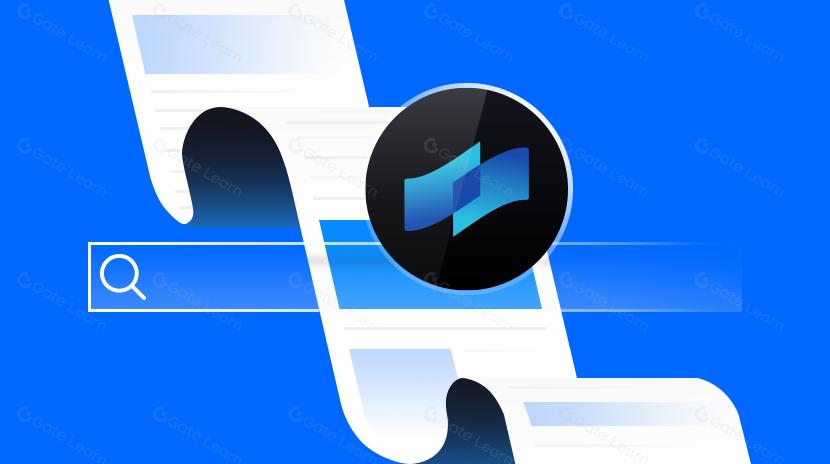Qu'est-ce que Shaga?
Introduction
Shaga est une plateforme de jeu en nuage décentralisée qui permet aux utilisateurs de jouer à des jeux haute performance sur n'importe quel appareil en diffusant le gameplay à partir d'un réseau distribué de PC de jeu. Contrairement aux services de jeu en nuage traditionnels qui dépendent de serveurs centralisés, Shaga utilise une infrastructure peer-to-peer, réduisant la latence et les exigences matérielles pour les joueurs.
Avec la demande croissante de jeux accessibles, des plateformes comme Shaga visent à supprimer la barrière financière de la possession de matériel de jeu coûteux. En transformant les ordinateurs personnels inactifs en une partie d'un réseau distribué, Shaga fournit une solution évolutive pour le cloud gaming qui profite à la fois aux joueurs et aux contributeurs du système.
Cet article explique Shaga, comment il fonctionne, qui est derrière, son potentiel d'investissement, les détails du jeton et la feuille de route. Que vous soyez un joueur, un investisseur ou quelqu'un explorant l'infrastructure Web3, ce guide offre une vue claire et mise à jour du rôle de Shaga dans l'écosystème du jeu.
Qu'est-ce que Shaga?

Shaga est une plateforme de jeu en nuage décentralisée qui fonctionne sur une infrastructure peer-to-peer (P2P). Au lieu d'utiliser des centres de données centralisés comme le font les fournisseurs de jeux en nuage traditionnels, Shaga s'appuie sur un réseau distribué de PC de jeu contribués par les utilisateurs. Ces PC agissent comme des nœuds qui diffusent des jeux aux joueurs sur différents appareils.
Le principal objectif de Shaga est de rendre les jeux haute performance plus accessibles en supprimant le besoin de matériel coûteux. Les utilisateurs peuvent jouer à des jeux gourmands en ressources sur des appareils peu performants, y compris des téléphones mobiles et des ordinateurs plus anciens, en se connectant au réseau de Shaga.
Shaga est construit sur la blockchain Solana, qui prend en charge sa conception décentralisée et permet des récompenses sur chaîne, un suivi de l'utilisation et des incitations futures basées sur des jetons. La plateforme fait partie du secteur en croissance du DePIN (Decentralized Physical Infrastructure Network), où le matériel physique est partagé grâce à une coordination basée sur la blockchain.
En résumé, Shaga permet aux joueurs d'accéder à des expériences de jeu PC de haute qualité grâce à un système distribué, tout en donnant aux propriétaires de PC un moyen de gagner des récompenses en partageant la puissance informatique inutilisée.
Histoire de Shaga, Origines et Personnes Clés

Shaga a été fondée en 2023 par une équipe de professionnels issus des domaines de la blockchain, des jeux, des systèmes distribués et des réseaux. L'équipe fondatrice comprend Guido Rocco Pardini, qui occupe le poste de PDG, Daeshawn Ballard, qui est le directeur des opérations, et Aaron Sternberg, qui est le directeur des revenus.
La société a obtenu un financement grâce à plusieurs tours de table d'investissement. En décembre 2023, Shaga a levé 800 000 $ par Arca lors d'un tour de financement de démarrage. Cela a été suivi par un tour de série A en juin 2024, où la société a obtenu 3,3 millions de dollars supplémentaires. Après cela, IOSG Ventures a également investi 4 M.
Les investisseurs notables dans Shaga incluent Arca, Marin Digital Ventures, Quotient Ventures, SkyBridge20 Ventures et Aurory. La société a également attiré des investisseurs individuels tels qu'Amir Haleem, fondateur de Helium, et Anatoly Yakovenko, cofondateur de Solana.
La mission de Shaga est de révolutionner l'expérience de jeu grâce à un réseau ouvert, décentralisé et sans autorisation. En exploitant le cloud piloté par la communauté, Shaga permet aux propriétaires de PC de convertir la puissance de calcul inutilisée de leurs systèmes en nœuds, améliorant les performances et l'accessibilité des jeux.
La société a également été reconnue pour ses avancées technologiques, ayant remporté deux hackathons mondiaux DePIN. Le réseau de pointe pair-à-pair de Shaga, le matériel et la technologie brevetée en intelligence artificielle ont démontré des améliorations de performances, atteignant des vitesses jusqu'à trois fois plus rapides que les plateformes traditionnelles comme Google Stadia.
Comment fonctionne Shaga ?
Shaga fonctionne comme une plateforme de jeu en nuage décentralisée construite sur une infrastructure pair à pair (P2P). Au lieu de s'appuyer sur des centres de données centralisés, la plateforme utilise un réseau de PC de jeu distribués - appelés nœuds - contribués par des utilisateurs individuels. Ces nœuds fournissent les ressources informatiques nécessaires pour diffuser des jeux à d'autres joueurs.
Lorsqu'un utilisateur souhaite jouer à un jeu, Shaga attribue la session au nœud le plus proche ou le plus optimal en fonction des performances et de la disponibilité du réseau. Cela réduit la latence, améliore la réactivité et permet aux utilisateurs de diffuser des jeux graphiquement exigeants sans posséder de matériel haut de gamme.
L'architecture de la plateforme relève de la catégorie du Réseau d'Infrastructure Physique Décentralisée (DePIN). Les utilisateurs qui exécutent le logiciel Shaga sur leurs PC permettent à leurs systèmes de devenir partie intégrante de l'infrastructure, partageant CPU, GPU, mémoire et bande passante.
Shaga utilise également la technologie de la blockchain Solana pour coordonner les sessions, suivre l'utilisation et gérer les récompenses on-chain. Des contrats intelligents peuvent être utilisés à l'avenir pour gérer des tâches telles que les paiements aux opérateurs de nœuds et l'accès au contenu du jeu.
Principales caractéristiques de Shaga

Shaga offre plusieurs fonctionnalités de base qui la distinguent des services de cloud gaming traditionnels :
Infrastructure de jeu en nuage décentralisée
Shaga fonctionne sur un réseau décentralisé de PC contribués par les utilisateurs plutôt que sur des serveurs centralisés. Ce modèle distribué permet un streaming de jeu plus rapide et réduit les coûts d'infrastructure, tout en augmentant la fiabilité en supprimant les points de défaillance uniques.
Manette de jeu Odyssey Web3
Shaga développe Odyssey, le premier contrôleur de jeu Web3 au monde. Cet appareil permettra aux joueurs d'interagir directement avec des NFT, des portefeuilles crypto et des actifs numériques dans les jeux, créant un lien entre les expériences de jeu traditionnelles et la technologie blockchain.
Latence ultra-faible
En utilisant un routage pair à pair et en affectant des sessions de jeu à des nœuds géographiquement proches ou optimaux, Shaga réduit considérablement la latence. La plateforme rapporte des performances jusqu'à 3 fois plus rapides que les services centralisés comme Google Stadia, ce qui se traduit par un gameplay plus réactif.
Compatibilité multi-appareils
Les jeux sur Shaga peuvent être accessibles à partir d'un large éventail d'appareils, y compris des smartphones, des tablettes, des ordinateurs portables et des ordinateurs de bureau. Il prend en charge iOS, Android, Windows et macOS. Les joueurs peuvent utiliser des commandes tactiles ou connecter des manettes de jeu externes.
Gains passifs pour les opérateurs de nœuds
Les utilisateurs ayant des PC de jeu peuvent exécuter le logiciel Shaga et permettre à leur matériel d'être utilisé comme partie du réseau. En retour, ils gagnent des récompenses basées sur le temps de disponibilité et l'utilisation. Cela incite à la participation et aide à faire évoluer le réseau de manière organique.
Diffusion de jeux sans téléchargement

Shaga permet aux utilisateurs de diffuser et de jouer à des jeux PC haut de gamme instantanément sans avoir besoin de les installer ou de les mettre à jour. Cela est particulièrement utile pour les utilisateurs disposant de peu d'espace de stockage ou de spécifications techniques faibles.
Intégration de la blockchain (basée sur Solana)
Shaga est construit sur Solana, une blockchain haute vitesse et à faible frais. Cette intégration permet une coordination sécurisée et rapide des sessions, le suivi des contributions en ressources, et le support des récompenses on-chain et des systèmes de jetons potentiels.
Support aux jeux Web3
Shaga prend en charge les jeux Web3, permettant aux utilisateurs d'accéder directement aux titres basés sur la blockchain via la plateforme. Cela simplifie le processus d'interaction avec les jeux cryptographiques en supprimant le besoin de téléchargements lourds ou de configurations complexes.
Est-ce que Shaga est un bon investissement?
Shaga peut être une opportunité d'investissement prometteuse, surtout pour ceux qui s'intéressent aux projets d'infrastructure Web3 au stade précoce. Il répond à un cas d'utilisation réel - le cloud gaming - et offre une solution décentralisée qui exploite des ressources informatiques sous-utilisées. Cependant, comme tout projet émergent, il comporte des risques et des considérations.
Utilité du monde réel
Shaga résout un obstacle technique et financier dans les jeux en permettant aux utilisateurs de jouer à des jeux PC haute performance sans posséder de matériel coûteux. Cette utilité pourrait favoriser l'adoption à la fois dans les marchés traditionnels et Web3 du jeu.
Soutien et partenariats
Le projet a reçu un financement de la part d'investisseurs reconnus de Web3 tels que Arca, Marin Digital Ventures, Quotient Ventures et SkyBridge20 Ventures. Il bénéficie également du soutien de personnalités telles que Amir Haleem (fondateur de Helium) et Anatoly Yakovenko (cofondateur de Solana), ce qui ajoute de la crédibilité.
Shaga a conclu des partenariats stratégiques, notamment une collaboration notable avec Star Atlas, un jeu AAA basé sur Solana. Cela suggère une convergence avec d'autres écosystèmes de jeux blockchain de haut niveau.
Risques de stade précoce
À l'heure actuelle, Shaga est encore en développement. Son jeton n'a pas encore été lancé, et de nombreuses fonctionnalités (comme des incitations économiques complètes et une participation généralisée des nœuds) sont encore en cours de déploiement. Cela signifie que l'investissement est spéculatif et dépend fortement de l'exécution.
Paysage concurrentiel
L'espace du jeu en nuage comprend des acteurs majeurs centralisés tels que NVIDIA GeForce NOW, Xbox Cloud Gaming et PlayStation Now. Alors que le modèle décentralisé de Shaga offre une différenciation, il devra prouver ses performances et son ampleur pour pouvoir rivaliser à long terme.
Pas encore de jeton public
Shaga n'a pas encore publié de jeton public au moment de la rédaction. Les investisseurs cherchant une exposition directe aux jetons devront attendre de plus amples annonces ou participer à des campagnes de lancement (comme des largages aériens ou des opérations de nœuds) pour potentiellement y accéder.
Comment pouvez-vous posséder Shaga?
Actuellement, Shaga n'a pas de jeton négocié publiquement disponible sur les bourses. Cependant, il existe deux principaux moyens pour les utilisateurs de participer à l'écosystème et potentiellement obtenir un accès précoce aux opportunités de propriété.
Rejoignez la campagne de largage de points GLOB

Shaga organise actuellement une campagne de largage aérien continue où les utilisateurs peuvent gagner des points "GLOB". Ces points sont conçus pour récompenser la participation et l'engagement précoces de la communauté. Bien qu'ils ne soient pas eux-mêmes des jetons, les points GLOB peuvent conduire à des allocations de jetons futurs une fois que le jeton Shaga sera officiellement lancé.
Pour gagner des points GLOB, les utilisateurs peuvent :
- Accomplir des quêtes et des tâches quotidiennes (p. ex., suivre les médias sociaux, visiter le site Web).
- Référez d'autres utilisateurs via un lien de parrainage.
- Interagissez avec les fonctionnalités de la plateforme pendant les phases d'accès anticipé.
Fonctionner un nœud (Contribuer du matériel)
Une autre façon de s'impliquer est de transformer votre PC de jeu en un nœud Shaga. Les utilisateurs qui installent le logiciel de Shaga et partagent leurs ressources matérielles - telles que CPU, GPU, RAM et bande passante - font partie du réseau décentralisé. En retour, les opérateurs de nœuds peuvent gagner des récompenses sous forme de points GLOB ou, à l'avenir, de jetons.
Pour faire fonctionner un nœud, les utilisateurs doivent :
- Posséder un PC de jeu compatible avec une connexion Internet stable.
- Téléchargez et exécutez le client du nœud Shaga.
- Maintenez la machine en ligne pendant les fenêtres de disponibilité requises.
L’exécution d’un nœud peut augmenter l’éligibilité d’un utilisateur à des incitations anticipées ou à des distributions de jetons une fois que le modèle tokenomique est en ligne.
Tokenomie de Shaga
À l'heure actuelle, Shaga n'a pas encore lancé publiquement son jeton natif, et les détails de la tokenomie n'ont pas été officiellement divulgués. Cependant, sur la base des informations disponibles, plusieurs points clés aident à définir ce que les utilisateurs et les investisseurs potentiels peuvent attendre.
Le jeton de Shaga n'a pas été répertorié sur les échanges publics, et il n'y a pas de date confirmée pour l'événement de génération de jetons (TGE). Le projet est toujours dans la phase pré-jeton, en se concentrant sur le développement de la plateforme et la construction de la communauté.
Shaga utilise actuellement un système de récompense non basé sur des jetons appelé points GLOB pour inciter à la participation des utilisateurs. Ces points sont gagnés grâce à des quêtes, des recommandations et des opérations de nœuds. Bien que les points GLOB ne soient pas des jetons, ils devraient jouer un rôle dans la distribution future de jetons. Cette approche ressemble aux stratégies courantes de largage aérien pré-jeton utilisées par d'autres plateformes Web3.
Bien que cela n'ait pas été officiellement confirmé, le jeton, lorsqu'il sera lancé, devrait probablement remplir les rôles suivants en fonction de la structure de la plateforme :
- Récompenses pour les opérateurs de nœuds contribuant à la puissance de calcul.
- Mise en jeu pour l'accès à des fonctionnalités exclusives de la plateforme ou à des niveaux de gains plus élevés.
- Gouvernance pour voter sur les décisions clés concernant le réseau.
- Paiements pour la diffusion de jeux ou fonctionnalités premium.
L'objectif actuel de l'équipe Shaga est l'intégration des utilisateurs, les tests de plateforme et l'expansion du réseau grâce aux premiers adoptants. Les détails sur la tokenomie devraient être publiés à l'approche ou pendant la phase de lancement du jeton.
Les utilisateurs intéressés par l'accès au jeton devraient suivre les canaux officiels de Shaga. Les détails de l'allocation de jetons, tels que l'offre totale, le déverrouillage de l'équipe, l'allocation des investisseurs et les options de vente au public, seront probablement publiés avant la TGE.
Feuille de route de Shaga

Phase 1: Shaga Glob (En direct)
Il s'agit de la phase actuelle et se concentre sur la construction de la communauté grâce à la participation ludique.
- Les utilisateurs peuvent gagner des points GLOB en complétant des quêtes quotidiennes, en rejoignant des campagnes et en référant d'autres personnes.
- Ces points peuvent se traduire en récompenses de jetons futurs une fois que le jeton natif est lancé.
- L’objectif principal est d’intégrer les utilisateurs et de récompenser leur participation précoce avant que le réseau ne soit pleinement opérationnel.
Phase 2: Shaga FriendGrid (Prévu pour l'été 2024)
Cette phase introduit la fonctionnalité de streaming de jeu en temps réel.
- Les utilisateurs pourront diffuser et jouer à leurs jeux PC en utilisant l'infrastructure décentralisée de Shaga.
- Il prend en charge le jeu avec des amis, en mettant l'accent sur des expériences de jeu collaboratif sans avoir besoin de matériel personnel haut de gamme.
- L'accent est mis sur la démonstration de la capacité de la plateforme à offrir un streaming de haute qualité sur tous les appareils avec une latence réduite.
Phase 3: Shaga Edge (Prévue pour l'hiver 2024-2025)
Cette phase permettra d'étendre Shaga à un marché entièrement décentralisé pour le streaming de jeux.
- La plateforme optimisera le routage pour garantir la latence physiquement la plus faible possible, en utilisant un réseau distribué de nœuds contribués par les utilisateurs.
- Shaga prévoit également de lancer sa plateforme de jeu en nuage décentralisée, soutenue par un réseau de nœuds de calcul qui permet aux joueurs de gagner un revenu passif en partageant leur matériel.
- Le développement d'applications de bureau dédiées (Windows) et mobiles (Android) est en cours et devrait prendre en charge la diffusion en continu sur tous les appareils.
- Parallèlement, Shaga travaille sur Odyssey, un contrôleur de jeu Web3 personnalisé, conçu pour améliorer le gameplay et se connecter directement à l'écosystème Shaga.
Conclusion
Shaga construit une plateforme de jeu en nuage décentralisée qui offre une alternative pratique aux services centralisés traditionnels. Il permet aux utilisateurs de jouer à des jeux PC haute performance sur une large gamme d'appareils sans avoir besoin de matériel coûteux. En même temps, il permet aux propriétaires de PC de gagner en contribuant à la puissance de calcul inutilisée en tant que nœuds dans son réseau distribué.
La plateforme en est à ses débuts, avec l'intégration des utilisateurs via des récompenses en points GLOB et l'engagement de la communauté. Des fonctionnalités telles que la diffusion de jeux en temps réel et des performances à ultra-faible latence sont prévues pour un déploiement progressif en 2024 et début 2025. Le projet bénéficie également du soutien d'investisseurs Web3 reconnus et de partenariats avec d'autres écosystèmes de jeu basés sur la blockchain.
Bien que le jeton natif n'ait pas encore été lancé, la feuille de route de Shaga suggère une stratégie claire vers une pleine décentralisation et une participation pilotée par les jetons. Pour les utilisateurs, les joueurs et les premiers supporters, cela pourrait offrir à la fois une utilité et un potentiel à long terme, à condition que l'équipe continue à atteindre ses objectifs.
Dans l'ensemble, Shaga est un exemple pertinent de la façon dont l'infrastructure décentralisée peut résoudre des problèmes réels dans l'industrie du jeu, et son évolution méritera d'être suivie à mesure que l'écosystème se développe.
Articles Connexes
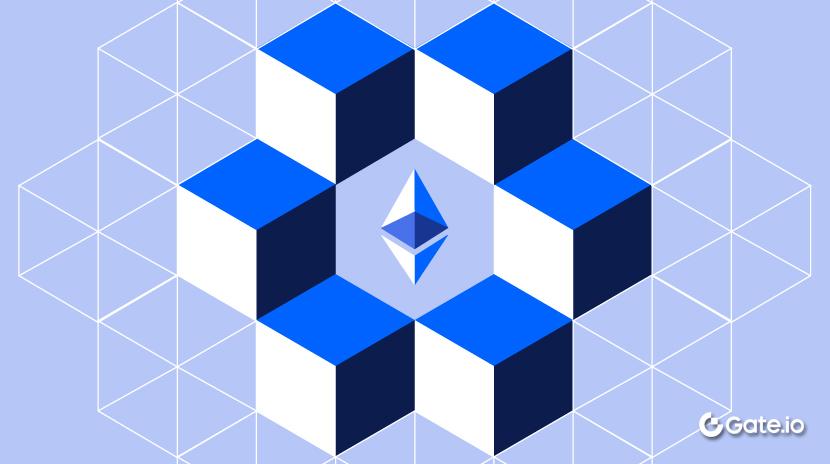
Comment miser sur l'ETH?
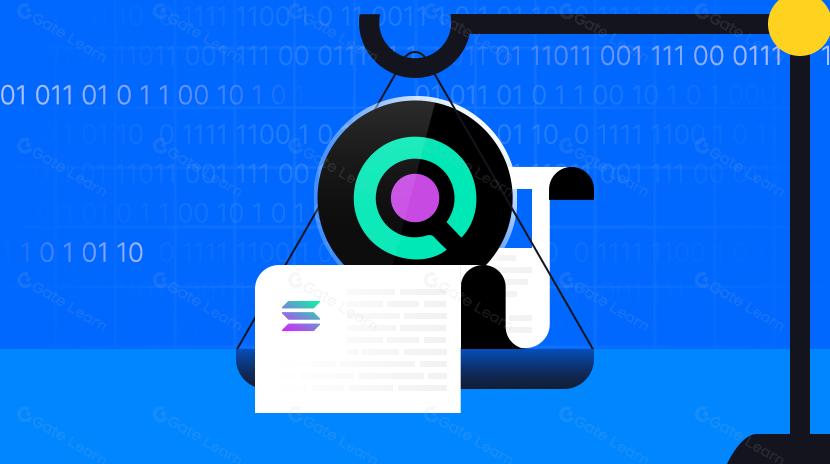
Qu'est-ce que Solscan et comment l'utiliser ? (Mise à jour 2025)
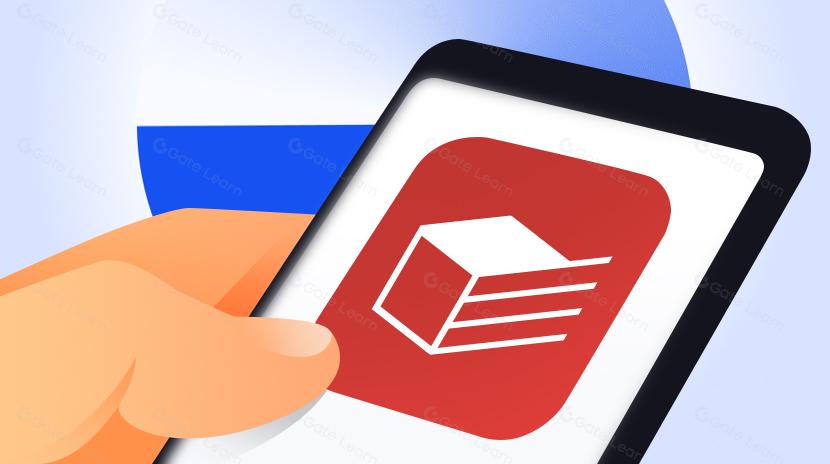
Qu'est-ce que Tronscan et comment pouvez-vous l'utiliser en 2025?
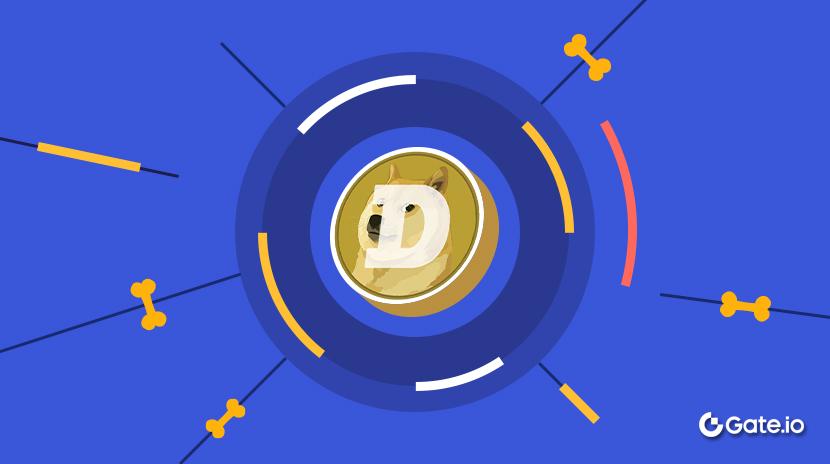
Qu'est-ce que le Dogecoin ?
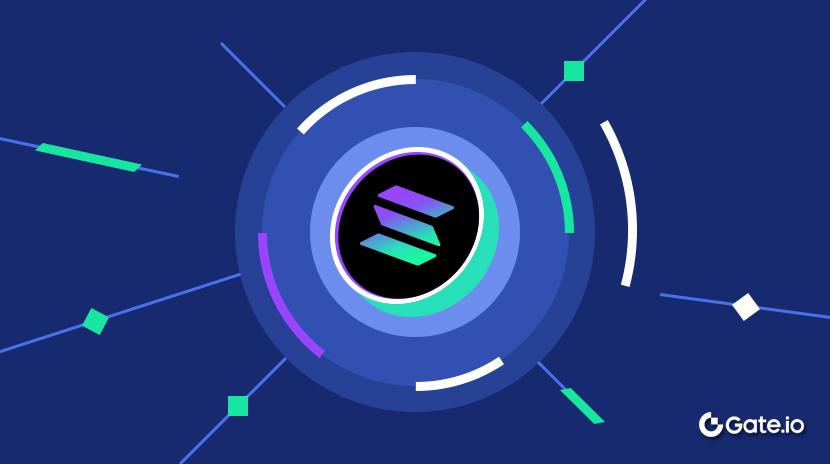
Qu'est ce que Solana?
